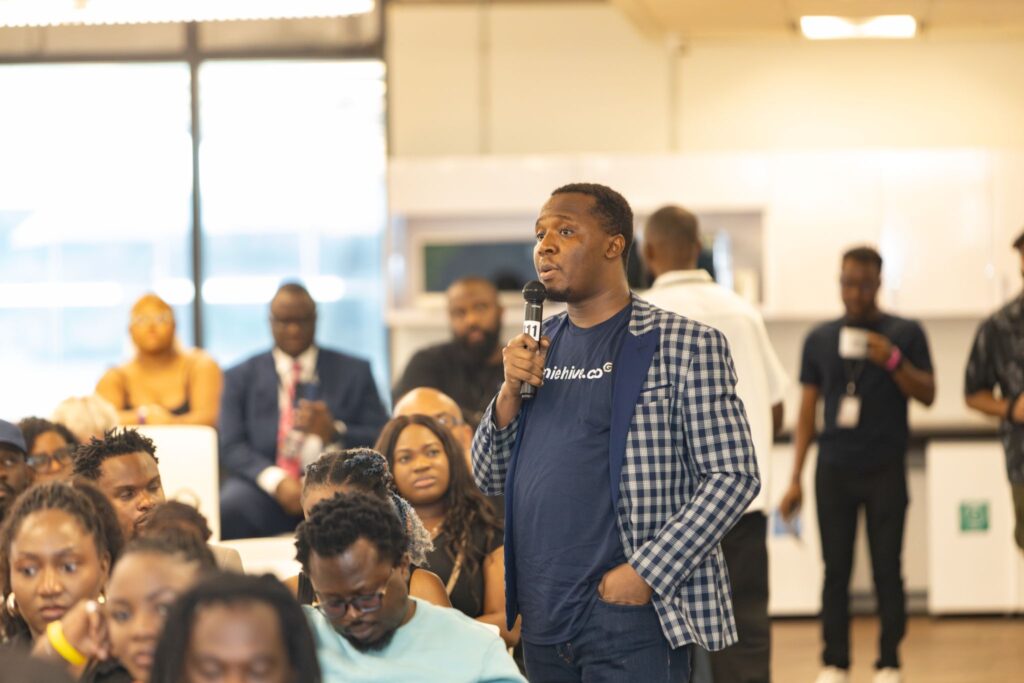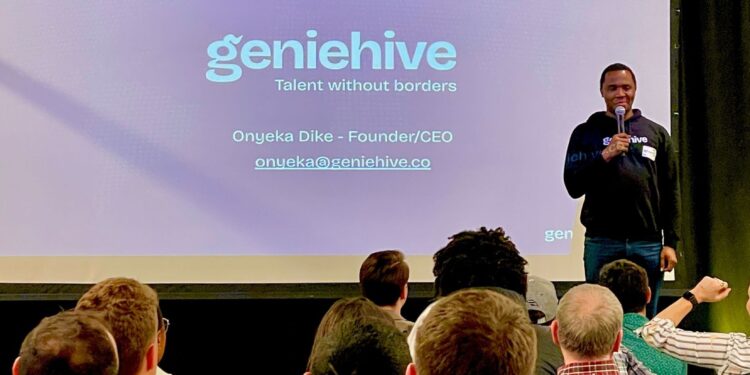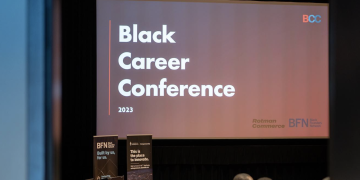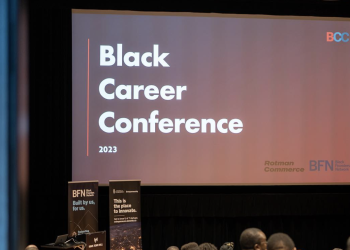After years of building a successful career in Nigeria, Onyeka Dike opens up about why he left Nigeria, and what inspired the creation of GenieHive. He explained how the platform is reimagining remote work by connecting vetted African talent with international clients, using AI, upskilling, and inclusive infrastructure as its backbone.
“By 2035, it may be easier to find water in the desert than to find top talent in North America or Europe,” the founder noted.
GenieHive aims to close this gap by connecting vetted African professionals with global clients.
He also shares thoughts on immigration policy, systemic barriers in global freelancing, and what’s next for the company as it scales from Canada to the rest of North America.
With a background spanning over a decade in marketing, including roles in banking, fintech, FMCG, and advertising, as well as multiple degrees, the founder brings both academic rigor and hands-on business acumen to GenieHive.
Part of this interview has been edited for length and clarity
Q: Why did you decide to leave Nigeria, and how did Canada become part of your journey?
Onyeka: I chose to leave Nigeria because I wanted to explore other possibilities and see what opportunities existed outside the country. I felt I had reached a point where moving on was the right thing to do. There were opportunities around the globe, and Canada was definitely the next. Canada stood out because I had friends who had moved there and have shared their experiences.
I wasn’t eager to move to the U.S. because I wanted a more family-friendly environment. And Canada seemed to offer that. When I finally visited the U.S. in 2023, I found that Canada felt more balanced overall, especially in its economy, laws, and general atmosphere. All these made it clear that the next logical step was to leave Nigeria.
Q: Tell us about GenieHive and what you’re building.
Onyeka: GenieHive is a talent marketplace that connects top talent from Africa with clients globally. If you look at global labor trends, Africa is the future. According to the International Monetary Fund (IMF), by 2030, 50% of new entrants into the global workforce will come from Africa. Meanwhile, countries in North America and Europe are facing declining birth rates and ageing populations. For example, the fertility rate in Canada is about 1.26% children per woman, which is the lowest level ever recorded. This figure indicates that, on average, women in Canada are expected to have 1.26 children over the course of their reproductive lives. This means each family has less than two children. This rate places Canada among the “lowest-low” fertility nations.
But then, in contrast to Africa, where you have about 40% of Africans in a young population, you’ll find that they are 15 and under. And then if you choose to increase, that’s when you have maybe 70% of the young African population under 30. So what the demographic shift means is that the large population (young population) of Africa will power the global labor force from 2030 and beyond.
And we have a hypothesis that by 2035, it will be more difficult to get top talents in Europe and America. So basically, what we are doing is building the marketplace that bridges this gap. We are building a marketplace that connects vetted and highly skilled African talents to companies/clients around the world.
Some other factors have made this even more critical at this point across the continents that I mentioned. There are immigration issues – knee-jerk immigration policies, which means that some of these countries can’t access some of the top talents from outside of their countries. If they’re shutting down on immigration and all that, then we are saying, Hey, you do not even need to bring these talents over to your country, if you are complaining about accommodation issues, infrastructure and all that.
We have top talents. They are highly vetted talents across Africa. All you need to do is get on our platform, hire these talents and get them to work for you. And the interesting thing is that you will receive more than 50% of your marketing budget just by working with them.
I served as the External Affairs Officer for the Postgraduate Students’ Society at McGill University from 2022 to 2023. A few months after my tenure ended, I noticed the association was planning to build a new website. The quotes they received from agencies were surprisingly high, the lowest was in the hundreds of thousands.
Knowing I could deliver a better-quality solution for a fraction of that cost, I reached out and offered my help. That single email led them to reopen the entire bidding process. I guess the project was put on hold, but the most important thing from the experience opened my eyes to how much organizations spend on tech and marketing services, just because they’re hiring talents from North America or elsewhere.
This made me realize the opportunity in connecting companies with highly skilled African talent who can deliver equal, if not superior results at a significantly lower cost. Apart from the fact that you are saving a whole lot on your budget, you are also getting people who can do just about the same work that anybody here in North America can do, because we have a lot of talented Africans who are just looking for the opportunity. Many of these talents simply lack access to global clients.
We are incorporated in Canada and will soon be incorporated in the U.S. We are connecting the best talent from Africa to clients around the globe and saving them a whole lot of money while doing that. The talents also get a chance to do meaningful, impactful work on a global scale.

Q: With immigration policies tightening across the US, Canada, and Europe, and looking at what you are building at GenieHive, would you say the shifts in immigration policy work to GenieHive’s advantage or disadvantage? How do you see the platform thriving amidst these global changes?
Onyeka: The immigration policies are a huge advantage to us. While I understand that these countries have their reasons for revising or restricting immigration pathways, often to prioritize sectors like healthcare or home care, the reality is that labor shortages still exist in other critical areas, such as tech and marketing.
I remember a founder shared on LinkedIn that because of the immigration policies, they can no longer bring talents to Canada. What that means is that if they’re not able to bring talents, the companies that those talents are supposed to work for will definitely suffer because they now have shortages in terms of manpower. And apart from the fact that they have shortages, there’s also the parts where you do not have enough skilled people, homegrown talent in that space.
This same founder was asking for referrals because he couldn’t find local tech talents with the expertise he needed. So he asked for recommendations if people knew any such people.
So definitely the immigration policies are working in our favor because instead of bringing talents over, they can do their best work working remotely.
That’s where GenieHive comes in. We offer an alternative: companies don’t need to relocate talent. We have a vetted network of African professionals who can work remotely and deliver world-class results. Unlike platforms like Upwork or Fiverr, where anyone can set up a profile and maybe put a portfolio together that probably does not belong to them. We thoroughly vet our talents through assessments, interviews, and skills checks.
We treat every application like a proper job recruitment process. And the reason is that we want to be sure that everybody who comes on our platform as a talent can do what they say they can do. And the reason is very understandable. You do not want someone wasting your time saying they are capable, and then you try them out, and your time has been wasted. I believe that time wasted is money wasted, especially in the life of any business. That’s one of the things I will try to ensure doesn’t happen.
Q: With AI, things like software development, marketing are becoming a lot easier because there are AI tools that will simplify the process. How are you integrating AI into your workflows? How are the talents on your team getting AI-enabled or being prepared for this new reality?
Onyeka: One of our main focuses in recent weeks has been developing process flows that integrate AI as a core part of our daily operations. This means that talent on our platform gets to experience and work with AI from the start, even in the talent-matching process itself.
We refer to ourselves as an AI-driven marketplace because we are embedding AI across key functions like talent discovery, content creation, and app development. As part of this, we’re actively training our talent to use some of the latest AI tools, not just for their specific roles, but to enhance and scale the quality of their work.
We’re also working on launching a platform that functions like an advanced EdTech solution, focused specifically on AI-first upskilling. It’s not just about teaching core skills; it’s about helping talent learn how to 10x their performance by leveraging AI.
Our goal is to ensure that everyone coming through our platform becomes “AI-native,” able to integrate AI into their workflows for better productivity and quality.

Q: Are there new products or services you are set to launch or partnerships you would like to talk about?
Onyeka: Yes. In terms of products, we’re working on launching the Genie School, our upskilling and training arm. It should go live over the next couple of weeks.
But we’re not building another generic EdTech platform; instead, we’re partnering with existing ones to integrate better tools that support upskilling for African talents. Our goal is to enhance the training ecosystem, so we receive top-tier talent on our end.
Then, in terms of partnerships, we’re also part of the Ignition Program and engaging with investors and potential partners, including government agencies and companies.
We are talking to a few of them at the moment, and once the partnerships materialize, we’ll make announcements. All these would help us deliver impactful skills, reach more companies and connect more African talents with real opportunities.
Q: How did your past experiences prepare you to launch GenieHive, and the motivation behind it?
Onyeka: I’ve been in marketing for over a decade, across sectors like banking, fintech, FMCG, and advertising. Academically, I have two degrees in English and a second master’s from McGill University. I’ve also built two other businesses in Nigeria that are still running successfully. GenieHive is my third venture and our second incorporation in Canada.
The motivation came from observing how many global talent platforms exclude Africans, not openly, but systemically. For instance, if you get on Upwork and you work with any client, you get paid through PayPal. But PayPal doesn’t allow people to receive funds in many African countries. So freelancers often rely on friends or family abroad to receive payments for them, which shouldn’t be the case.
We built GenieHive to remove those barriers. It’s designed for African professionals to do their best work and receive fair compensation, all without unnecessary hurdles. We’re integrated with Africa-based fintech and remittance platforms, so payments are seamless. Ultimately, we’re addressing not just economic gaps, but also unemployment. This helps in reducing issues like crime by giving people meaningful work.
Final Thought
GenieHive is positioning itself not just as a talent marketplace but as a catalyst for economic inclusion.
The platform is addressing real barriers faced by African professionals and giving global businesses new ways to access skilled, affordable, and vetted talent.
As the founder highlighted, the mission goes beyond connecting people to jobs. It’s about helping them do their best work and redefining how global talent moves and operates.













